Love, trust, respect, and good communication are the cornerstones of a healthy relationship. If these elements are lacking, it can help to assess whether there are silent red flags in a relationship. These are warning signs that usually show themselves at the onset of a romantic connection but are overlooked because they come across as trivial issues that do not need much attention.
We’re all aware of the obvious red flags like controlling behavior, emotional or physical abuse, lack of respect, substance abuse, physical violence, manipulation, and extreme jealousy, to name a few. But what do silent red flags in a relationship mean? To answer this question and understand the signs, we spoke to consultant psychologist Jaseena Backer (MS Psychology), who is a gender and relationship management expert.
9 Silent Red Flags In A Relationship No One Talks About
Table of Contents
Jaseena says, “Silent red flags are those that are not as obvious or jarring as the obvious ones like abuse, manipulation, and gaslighting. They aren’t visible but are as toxic as any other red flag. Perhaps, even more so because dealing with them can be confusing, and hard to pin down what exactly about the relationship is irksome. Such red flags include a nonchalant attitude in a relationship, not being thankful or apologetic, over-possessiveness, expecting you to make them your priority but not doing the same in return, and giving you threats or ultimatums.”
People continue to be with partners that exhibit such behavior patterns because they feel they can compromise and overlook such traits by balancing them with the love and affection that their partner shows them. These subtle red flags in a man or woman are indicators of the existing incompatibility, lack of mutual understanding and emotional intimacy, and other potential problems between partners. Such relationship red flags can foretell the health and longevity of a long-term relationship.
When you begin to see such warning signs, you may find yourself asking – “Are these actually red flags or am I overthinking?” It might even lead you to question your own thoughts and ask yourself, “Is overthinking a red flag?” However, you should know that if you feel that there is something wrong, it most likely is. Recognizing the silent red flags in a woman or a man you’re dating will help you address them, work together to get rid of those elements, and build a healthy relationship with your partner. Here are 9 relationship red flags that no one talks about but should:
Related Reading: 11 Expert Ways To Cope With A Sudden Breakup In A Long-Term Relationship
1. Your partner often tells you how bad they are at relationships
If the person you love and want to be with always fools around saying about how bad they are at romantic or personal relationships or how they would make for a terrible partner because they are not ‘relationship material’, it’s a warning sign for you to run as far as you can from this person. Add it to your dating red flags checklist because when a person says that they suck at long-term relationships, it’s a clear hint at the hurt you might experience in the future.
Jaseena explains, “If your potential partner keeps saying that they are not the right person for you to commit or get emotionally attached to, know that this kind of behavior is a slippery slope. It’s a silent red flag that they’re not committed to you (or that they are not capable of committing to anyone) and that the relationship will only lead to disappointment in the future.”
How to deal
A few ways to deal with such a nonchalant attitude in a relationship include:
- Recognize the fact that it isn’t a joke even if your partner meant it as one
- Try to have an open and honest conversation with them about why they feel so and what can be done to improve the situation
- Hold them accountable for their mistakes and behaviors instead of letting them get away with the “I told you I’m bad at it” excuse
- Consider leaving if your partner shows no signs of commitment

2. Negging
This is one of the most overlooked red flags in a person. Negging is a manipulation tactic where a person uses backhanded compliments or comments to insult their partner or make them feel like they aren’t good enough. It’s a flirtatious technique used to attack their self-esteem and self-confidence just before seducing or expressing romantic interest in them. A study by the National Center for Biotechnology Information concluded that hostile criticism negatively affects the functioning of a relationship and offers less satisfaction to those involved.
Jaseena explains, “Observe if your partner makes you feel like you’re not good enough. Are they always comparing you to others? Do they make you feel like you’re not worthy of their love? If they make you feel uncomfortable and insecure and then make you feel like you need their validation or approval, it’s one of the silent red flags in a relationship that you shouldn’t ignore because it can cause low self-esteem issues.”
Statements like,
- “You’re fat but handsome”
- “You look beautiful. I never thought you could pull it off with that body type”
- “You drive well for a woman”
- “Congratulations on the promotion! I’m surprised you got it”
… are examples of negging or “constructive criticism” as self-absorbed partners or manipulators like to falsely call it. The aim is to hurt your self-worth and make you feel as if you need your partner’s approval. Most people tend to ignore it but shouldn’t because this kind of comment or constant criticism in a relationship is a toxic trait and a form of manipulation. After all, not all compliments are designed to make you feel special. Turns out, too many compliments can be a red flag.
How to deal
A few ways to shut down negging include:
- Apply restraint instead of returning insults. You don’t have to stoop to your partner’s level to get back at them
- Use humor to deflect the situation
- Tell your partner that you do not appreciate such backhanded compliments and that they should stop such behavior
- Walk away if your partner refuses to apologize and keeps up the act
Related Reading: How To Watch Out For The Relationship Red Flags – Expert Tells You
3. Your partner is always late
Being late is one of those silent red flags in a relationship that is not even considered an issue to stress over. But it should. If there’s a genuine reason your partner is late, it’s understandable. Maybe they overslept one day, had a hectic day at work, were running important last-minute errands, or had an emergency to take care of. There could be several other reasons, even related to their mental health, and that’s okay. But if it becomes a repetitive pattern, you have a problem.
Being late consistently and not showing remorse is disrespectful and shows your partner’s lack of interest in and indifference toward you. It is a classic example of a nonchalant attitude in a relationship. It shows that they not only don’t value or respect your time but are also unwilling to put in the effort to honor the plans both of you made. In such a situation, do you think they are going to put in the effort to make the relationship work? Are you sure they are as interested in you as you are? If they can’t respect your time, what makes you think they respect you as an individual?
How to deal
Here are some tips to help you deal with the problem:
- Talk to your partner about it and let them know that their tardiness is displeasing and disrespectful
- Understand why your partner is always late and work on finding a middle ground
- Set an example with your own time management strategies
- If your partner’s tardiness is a deal breaker for you, make a call
Related Reading: 7 Predictors Of Divorce You Should Be Aware Of
4. The relationship is moving too fast
Jaseena says, “If a new relationship is moving too fast, it means that you’ve probably not given this whole thing a thought. Your partner might have rushed you into the relationship so you didn’t get the time or personal space to think if you’ve made the right decision. You might not have had a chance to understand or analyze what is happening or why it is happening so fast. If this is the case, know that it’s one of those warning signs in a relationship you shouldn’t ignore.”
It feels great to see a new relationship or whirlwind romance come to its fruitful conclusion in movies. But when you’re faced with a fast-moving relationship in real life, it is always advisable to take a step back and analyze your feelings. When things move too quickly in the early stages, people tend to ignore the red flags and can’t see the worst side of their partners because they’re still riding high on love.
A new relationship requires nurturing and that takes time. We’re not saying all whirlwind romances fail but moving too fast in a relationship could be a silent red flag that you didn’t see coming. Such romances tend to fizzle out as quickly as they start — just like they would after that third date you went on during your teenage years.
How to deal
Here are a few tips to slow down:
- Have an honest conversation with your partner about your worries, expectations, and needs
- Listen to what they have to say without judgment
- Make time for yourself and do things that you enjoy
- Set some boundaries and discuss the steps to be taken in case either of you crosses the line
- Take a step back and ask yourself how you feel about the relationship and your partner. Do you feel connected to them or is it just an attraction?
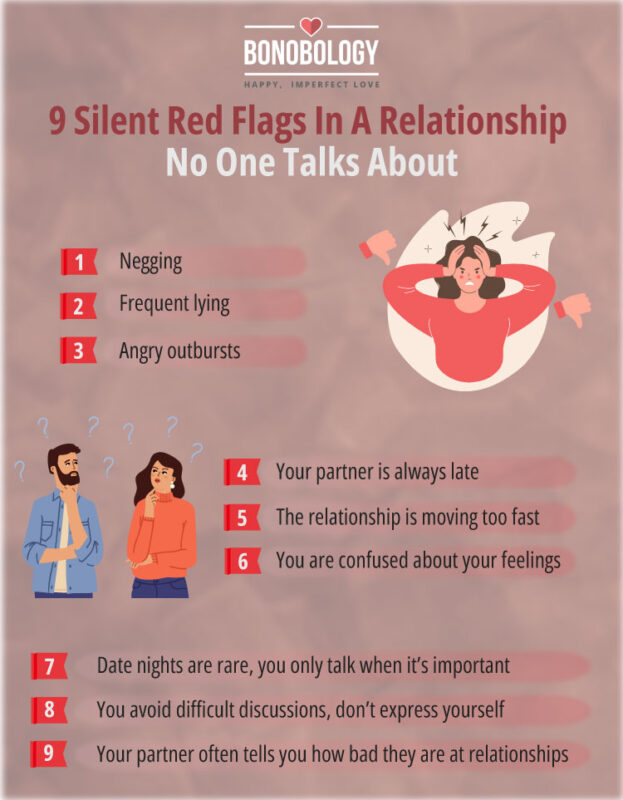
5. Your partner is confused about their feelings
Jaseena says, “Before coming to any conclusion, always ask yourself – “Do you feel your partner is confused about their feelings for you? Are your partner’s actions leaving you puzzled about the status of your relationship?” If the answer is yes, then there’s a high possibility that your partner does not feel the same way for you as you feel for them. They are confused about their feelings toward you.” The reasons could be several. They might have their own insecurities or could be:
- Emotionally unavailable
- Scared of commitment
- Breadcrumbing
- Not serious about planning for the future
- Lacking interest in the relationship
- Worried whether both of you are a good match
Is insecurity a red flag? Yes. Jaseena explains, “If your partner is always talking in the present and refuses to entertain any talk related to marriage or building a future together, then it’s clear that they don’t want to be with you for the long run. It’s a clear sign that they do not want to commit to you for good.” If you value the relationship, you will talk about the course it takes in the future, but if your partner is not interested, it’s one of the subtle red flags in a man or woman.
How to deal
Here’s how you can deal with your partner’s non-committal attitude:
- Give them time and space to streamline their thoughts and emotions and how they feel about you
- Don’t pressure them into making a decision about you and the relationship
- Don’t go overboard or out of your way to please your partner. They might start taking you for granted
- Deal with the situation in a calm and composed manner. Panicking will only make the situation worse for both of you
Related Reading: When Is The Honeymoon Phase Over? 15 Signs To Watch Out For
6. Angry outbursts
It is one thing to be low on patience and another to have absolutely no control over one’s emotions when things go wrong. If your partner is known for their angry outbursts from time to time, it’s a sign that they do not know how to regulate their emotions.
Anger and emotional instability are one of those silent red flags in a woman or man that you must not ignore because they scream disrespect. It is not just an outburst, it’s verbal and emotional abuse directed toward you and that is definitely not a sign of a healthy relationship. It is normal to have arguments or different opinions. But if your partner gets angry at the drop of a hat, then know that you’re in a toxic relationship.
Jaseena says, “If you’ve been having a lot of arguments in the relationship and each one of them ends with either or both partners getting angry or throwing a fit, then that’s a silent red flag you shouldn’t ignore. If you’re unable to have a normal conversation with each other or reach an amicable solution to your problems, know that it’s a toxic behavior pattern.”
How to deal
Anger can destroy the most loving relationships. To nip it in the bud, you could try these strategies:
- In the first place, don’t cover up or take the blame for your partner’s angry outbursts
- Maintain your calm and composure in the heat of the moment. Adding fuel to the fire will leave you nowhere
- Think about your actions and behavior and whether you have been doing anything to provoke your partner
- Establish boundaries by making it clear to your partner how much of their anger you will and will not tolerate
- Angry outbursts should be considered deal breakers in a relationship if they include name-calling, abuse, and disrespect
Related Reading: 9 Expert Tips To Know If Your Partner Is Lying About Cheating
7. Frequent lying
If your partner is frequently lying to you, it’s one of the red flags in a person you shouldn’t dismiss. We’re all guilty of lying at some point in our relationships and lives. But if it becomes a pattern and you notice signs of dishonesty in them consistently, know that it’s not normal and that you should put this in your dating red flags checklist.
Jaseena explains, “If your partner feels the need to compromise on their honesty in the relationship and hide facts or things from you saying that it was just a white lie, it’s a red flag and a sign of a toxic relationship. Trying to hide even the most trivial of things means that your partner is not being honest with you. It is proof that you cannot trust them.”
How to deal
Here are a few tips for dealing with a partner who lies frequently:
- Confront your partner about their lies in a calm, honest, and open manner
- Try to understand/consider what triggered or motivated them to lie to you and have a discussion with them about it
- Make it clear to your partner that you do not appreciate and will not tolerate being lied to
- Reconsider your decision to continue such a relationship

8. Date nights are rare, you only talk when it’s important
This is one of the most uncommon red flags in a relationship. Spending quality time with your partner is essential to keep the spark alive in the relationship. Expressing your love to your partner and strengthening your bond with them is key to a healthy and fulfilling relationship. But if those date nights have become rare to the extent that you don’t even remember the last time you went on one, then it’s one of those silent red flags in a relationship you shouldn’t ignore.
If your conversations are limited to work, paying bills, taking care of kids, or any other important matter, it’s a matter of concern. If you’ve stopped making time for each other, sending those lovey-dovey and caring messages, or complimenting each other, then there’s a problem.
How to deal
Here’s what you can do to sort out your communication issues and keep the spark in the relationship:
- Take the initiative to make a change instead of waiting for your partner to do so
- Try to have a meaningful conversation with your partner. Start with a “How was work?” or “How was your day?” and take it forward to a deeper talk
- Plan dates together. Kiss more often. Try to revive physical intimacy in the relationship
- Surprise each other with gifts or new activities that you can do together
Related Reading: 51 Adventurous Date Ideas To Get Your Adrenaline Pumping
9. You avoid difficult discussions and don’t express yourself
One of the silent red flags in a relationship is partners avoiding confrontation or conflict. Your partner should be your safe space, providing you with a sense of comfort. If you hesitate to have difficult conversations with or express yourself in front of them, know that these are signs of an unhealthy relationship.
This tendency will only make the relationship toxic and difficult to sustain. It will destroy trust, give way to a lack of respect, and cause communication problems in the relationship. Both partners might end up resenting each other. “Avoiding difficult conversations will lead you nowhere,” says Jaseena.

How to deal
You can follow these tips to stop sweeping the uncomfortable conversations under the rug:
- Plan what you want to say to your partner beforehand
- Have the conversation when both of you are calm
- Say what you want to say from your point of view. Start with ‘I’ statements. Tell your partner how you feel about a particular situation instead of putting the entire blame or responsibility on them
- Stay focused on the topic and listen to what your partner has to say about the matter
Key Pointers
- If your partner frequently lies to you or exhibits an abusive and controlling behavior pattern, know that these are silent red flags in a person you shouldn’t ignore
- Angry outbursts, communication gaps, mental and physical abuse, or running away from difficult conversations and conflict are silent red flags in a relationship
- If your partner is confused or unsure about their feelings and avoids talking about the future, then it’s a matter of concern
- Giving backhanded compliments, arriving late, rare date nights are all silent red flags in a relationship that you should be worried about
If you can relate to the above-mentioned red flags of an unhealthy relationship, then we suggest that you talk to your partner about these issues. Work toward saving your relationship, before these uncommon red flags become the reasons for separation. Don’t turn a blind eye to something you know is wrong. Nothing good has ever come out of staying in unhealthy relationships.
It is important to understand what silent red flags in a relationship mean so that you can figure out ways to get out of the toxicity. Jaseena, expressing her final thoughts on the topic, says, “Know that it is not your fault. It is best to leave such a toxic person because they will not make any amends to their behavior. Their unhealthy patterns will only aggravate as you start to bond with each other more or move in together. If you’re already living together or are married, you will have to draw certain boundaries and make it clear what is acceptable and what is not.”
But if you do decide to give your relationship another shot and are looking for help, Bonobology’s panel of licensed and experienced therapists is only a click away.
Your contribution does not constitute a charitable donation. It will allow Bonobology to continue bringing you new and up-to-date information in our pursuit of helping anyone in the world to learn how to do anything.
Ask Our Expert
You must be Logged in to ask a question.

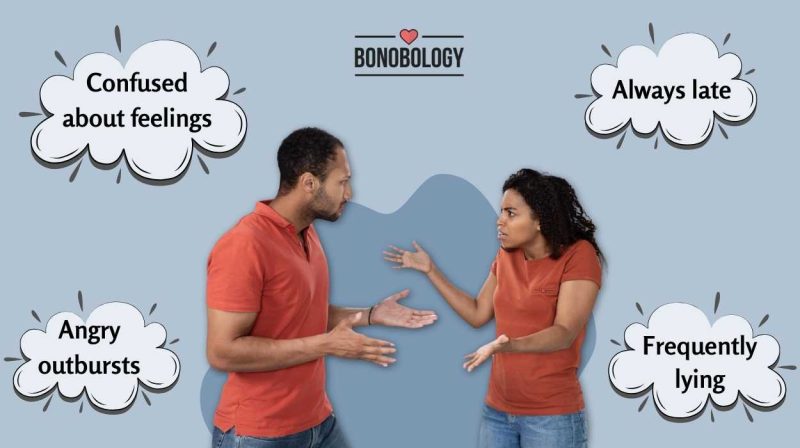



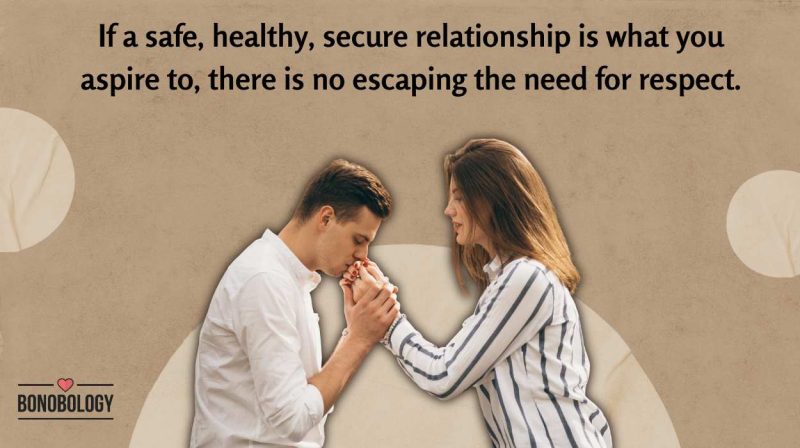

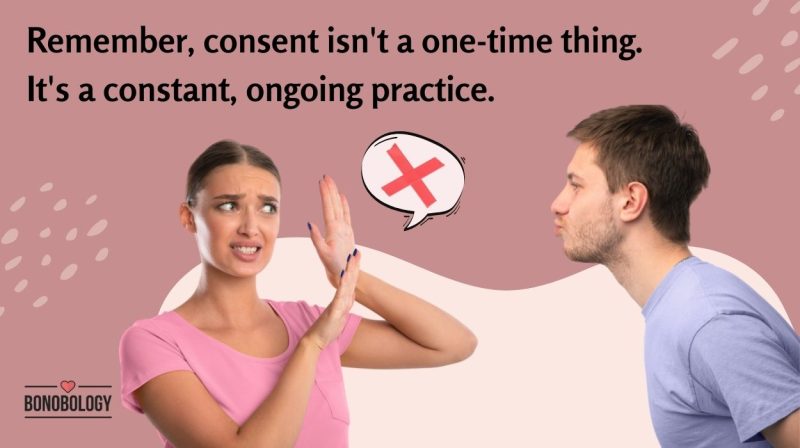

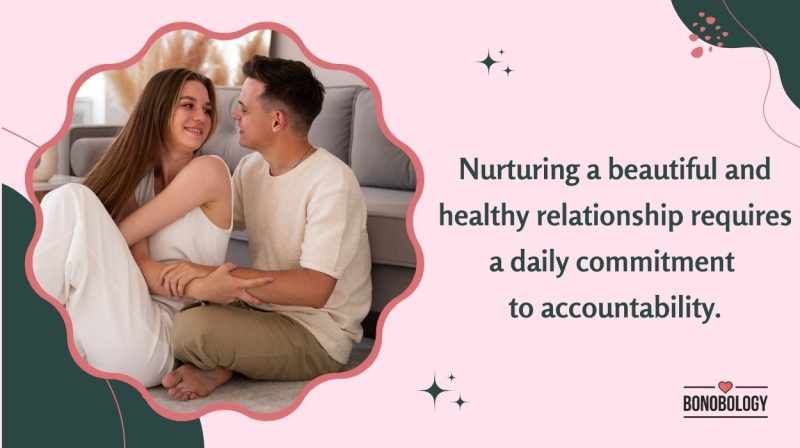






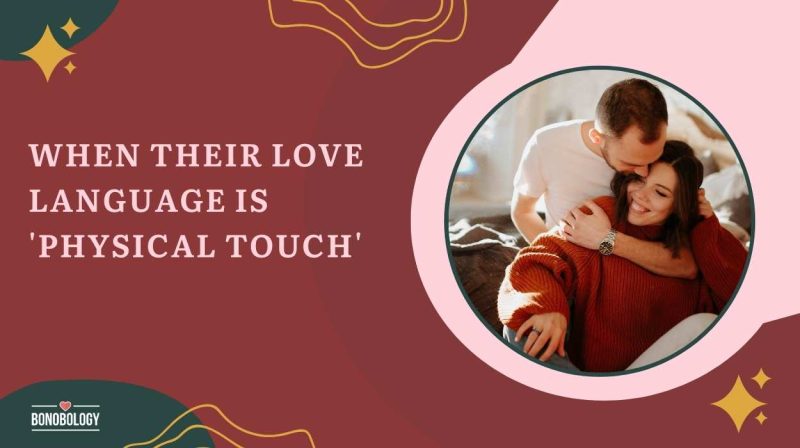
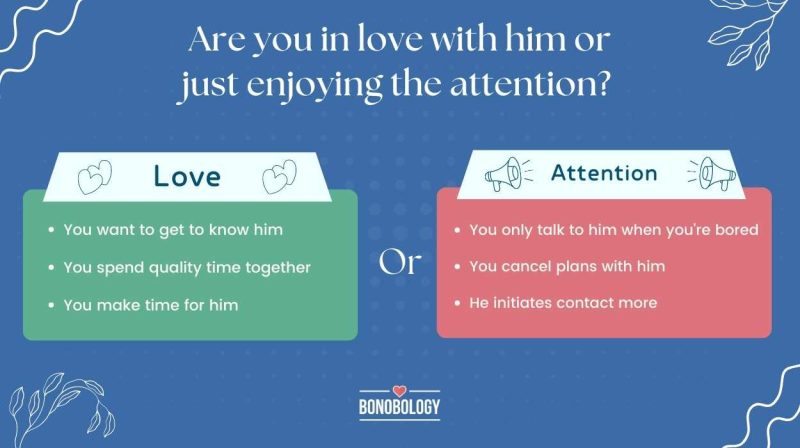
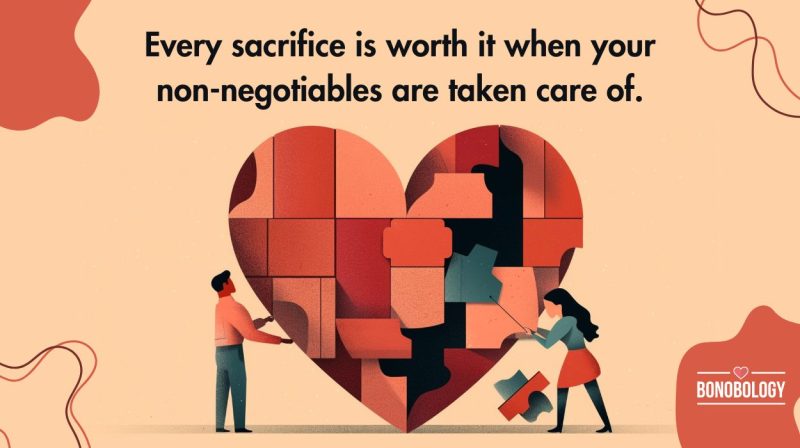
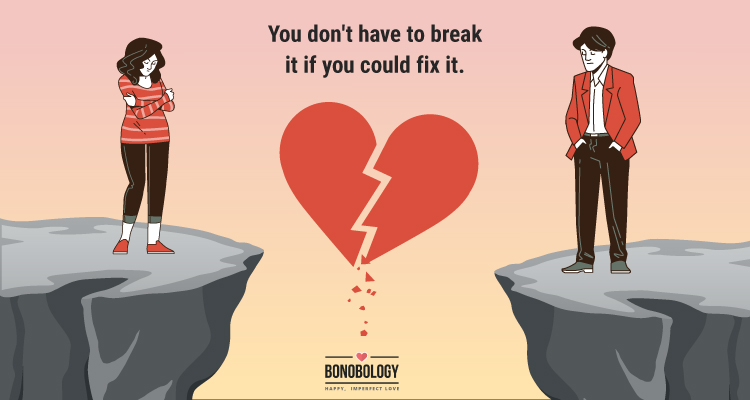
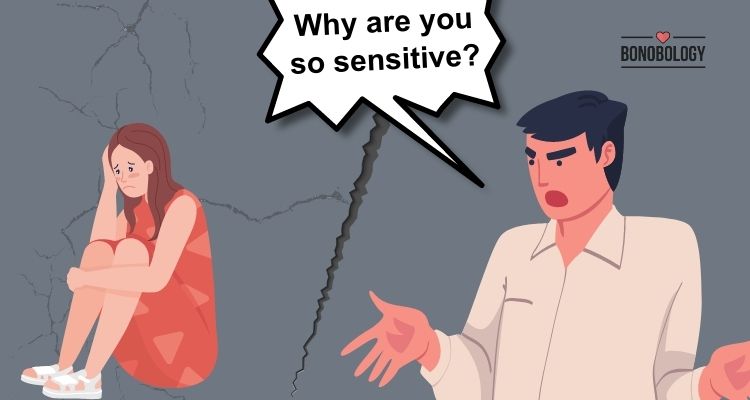


If your partner is neurotypical this is presumably great. However about half of it invalidates neurodivergent partners. Admittedly it’s a pretty hard partnership but it’s not right to have “doesn’t understand themselves” as a red flag when anyone on the autistic spectrum is going to really struggle to process any emotions.